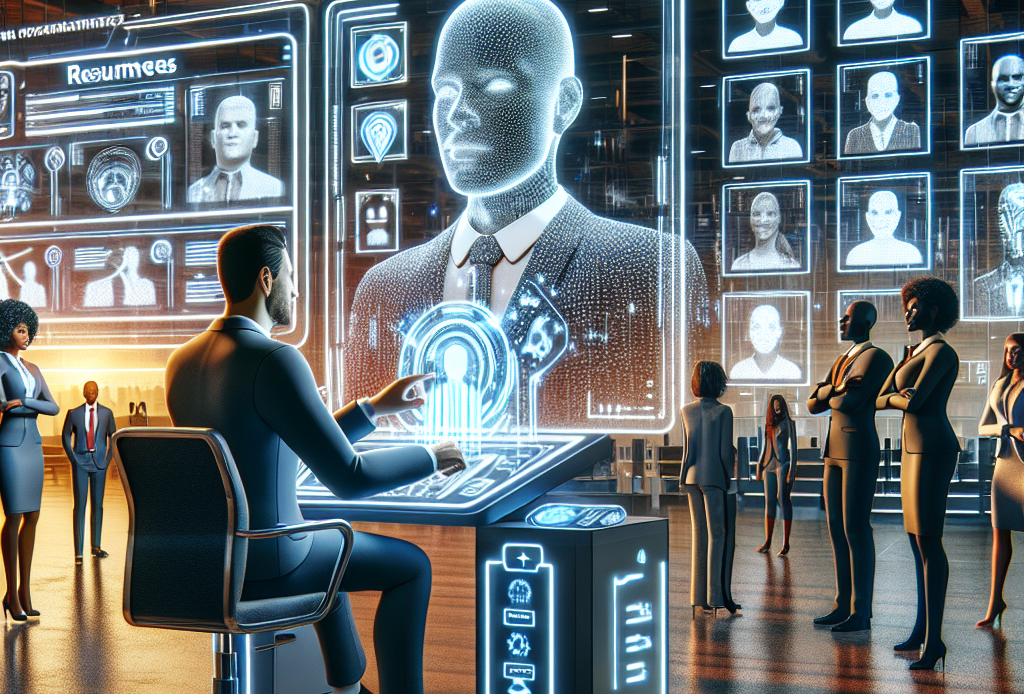AI Recruitment Automation: Unlock Effortless Hiring Success
AI recruitment automation is revolutionizing the hiring landscape, making it easier for organizations to find the right talent efficiently. As companies face increasing competition in attracting top candidates, the integration of artificial intelligence into the recruitment process has become a game-changer. From automating repetitive tasks to refining candidate matching, AI tools offer a substantial advantage in the ever-evolving job market. This article delves into how AI recruitment automation is transforming hiring, the benefits it brings, and what the future holds.
Understanding AI Recruitment Automation

At its core, AI recruitment automation utilizes machine learning algorithms and data analytics to streamline the hiring process. Traditional recruitment methods often involve hours of sifting through resumes, conducting lengthy interviews, and sorting candidates based on subjective judgments. In contrast, AI recruitment tools automate these tasks, allowing HR professionals to focus on strategic decision-making and building relationships.
How AI Works in Recruitment
AI recruitment tools typically operate through several key functionalities:
1. Resume Screening: AI systems can scan resumes much faster than a human recruiter, identifying skills, experience, and qualifications that match the job description. This reduces the time spent filtering out unsuitable candidates.
2. Candidate Engagement: Chatbots can engage with applicants in real-time, providing instant feedback and scheduling interviews without human intervention. This not only enhances the candidate experience but also keeps potential hires engaged throughout the process.
3. Predictive Analytics: By analyzing historical data, AI can predict the success of candidates in specific roles. This takes into account a variety of factors, including past performance, competency-based assessments, and even cultural fit.
This automation allows recruiters to work smarter, not harder, ensuring they only focus on the most qualified candidates.
Benefits of AI Recruitment Automation
The shift to AI-driven hiring processes offers numerous advantages that go beyond mere efficiency:
Enhanced Efficiency
AI recruitment automation dramatically reduces the time and effort involved in the hiring process. By automating repetitive tasks, HR teams can direct their attention to high-value activities, such as nurturing relationships with candidates and refining company culture. Shorter hiring cycles also mean companies can secure top talent before their competitors even begin the interview process.
Improved Candidate Experience
A significant advantage of using AI in recruitment is the enhancement of the candidate experience. Immediate responses through chatbots and streamlined scheduling create a more engaging process for applicants. Furthermore, AI can provide personalized feedback, making candidates feel valued and informed, regardless of the outcome.
Reduced Bias
AI recruitment tools can help reduce unconscious bias that often plagues traditional hiring processes. By relying on data and algorithms, organizations can create a more objective evaluation criteria based on merit rather than demographic or personal characteristics. However, it’s vital to ensure that the data used to train AI systems is free from bias to maintain fairness.
Data-Driven Decisions
Campaigns that involve AI generate rich data insights, allowing organizations to make informed hiring decisions. Analytics can reveal patterns and trends that human recruiters may overlook. For instance, tracking the performance of candidates from various sources can provide valuable insights into which channels yield the best hires.
Scalability
For companies anticipating rapid growth, AI recruitment automation provides an effective solution to scale hiring efforts without compromising quality. As the demands of the business grow, these tools can work at a pace that matches recruitment needs, ensuring that the right people are brought onboard, promptly.
Challenges in AI Recruitment Automation
While the benefits are significant, there are also challenges tied to AI recruitment automation that organizations must navigate.
Data Privacy and Security
With the use of AI comes the responsibility of safeguarding candidate data. Companies must ensure compliance with privacy regulations, such as GDPR, to protect applicant information. Implementing strict data security protocols is essential to build trust with candidates and avoid legal issues.
Dependency on Technology
While AI has the potential to improve recruitment significantly, it can also lead to an over-dependency on technology. Human judgment remains crucial in understanding nuanced candidate qualities that AI may fail to capture. Striking the right balance between technology and human insight is essential for effective hiring.
Change Management
Integrating AI into existing recruitment processes may face resistance from team members accustomed to traditional methods. Companies must invest in training and development to familiarize HR personnel with AI tools and ensure smooth adoption.
The Future of AI Recruitment Automation
Looking ahead, the landscape of AI recruitment automation is set to evolve even further. With advancements in natural language processing and machine learning, AI tools will become increasingly sophisticated, enabling them to assist recruiters in more complex tasks, such as predictive hiring and talent pooling.
Organizations may also begin to offer greater transparency regarding their AI usage, allowing candidates to understand how decisions are made. This could boost confidence in the recruitment process and reinforce a company’s commitment to fairness and inclusion.
Conclusion
AI recruitment automation is not just a trend; it represents a fundamental shift in how organizations approach hiring. By harnessing the power of artificial intelligence, companies can experience efficiency, reduced bias, and improved candidate relations, ultimately leading to hiring success. As technology continues to advance, the integration of AI will likely become indispensable, making it crucial for companies to embrace these innovations to stay competitive in the talent market. Embracing AI recruitment automation today will lay the groundwork for a more streamlined, effective, and equitable hiring process in the years to come.
